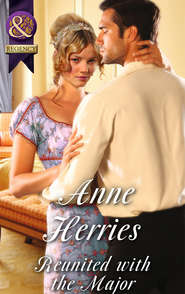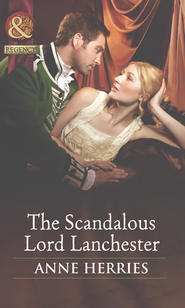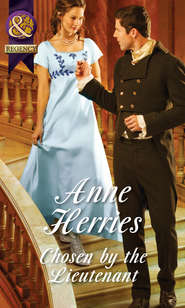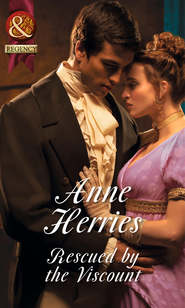По всем вопросам обращайтесь на: info@litportal.ru
(©) 2003-2024.
✖
The Sheikh
Настройки чтения
Размер шрифта
Высота строк
Поля
‘I—it is nice to meet you,’ Chloe replied formally and then felt silly. ‘My cabin is number fifty-two and Miss Ramsbottom’s is fifty-nine. I was going to call on her and see how she was feeling before I went to bed. She wasn’t well earlier.’
‘Bed so early?’ His brows rose, a curl of amusement on his lips. He was very much the sophisticated man of the world, and made Chloe aware of how young and naïve she must seem. She knew that her clothes were too young for her, and nowhere near as elegant as the other women on board were wearing. ‘You shouldn’t think of such a thing while on board ship, Miss Randall. A young girl like you should be dancing the night away with a handsome partner.’
Chloe knew he was mocking her. She hadn’t seen any handsome young men on board—and the few older ones who fitted his description would be dancing with someone more interesting than little Chloe Randall.
‘I assure you that I have no intention of dancing with anyone, Mr Armand,’ she said. ‘It has been a long day and I am tired. If you could please direct me to my cabin, I shall not trouble you longer. Especially if there is someone waiting for you…’
Now why had she said that? It sounded as if she were interested—and she wasn’t! Not in the least.
‘Unfortunately there is no one I care to dance with either,’ he replied, smiling oddly. ‘My fiancée was forced to remain in London. However, I should be happy to have you as a partner if you do feel tempted to dance another evening—when you are not so tired.’
To her annoyance, Chloe found herself blushing again. How was it that he was able to make her feel like a stupid schoolgirl? She was about to ask him for directions again when she saw a steward come out of one of the cabins, and turned to him quickly.
‘Certainly, I can show you the way, miss,’ he replied to her hasty question. ‘I am going that way now. Please follow me. Goodnight, Mr Armand.’
So he had not been lying about the name after all, Chloe thought as she nodded to him and followed the steward. Philip Armand shot her an amused glance and walked on down the corridor to where Chloe knew the staterooms were situated. They were much larger than her cabin, and had an opening so that the fortunate guest could step outside in privacy and take the air. She had been told that there was also a sitting room and two large bedrooms, and felt a little envious of the passengers who could afford such luxury.
But she was lucky to be here at all! Chloe reminded herself. She would never even have had the chance to travel abroad like this if it had not been for the generosity of Charles Hicks.
She knocked at Amelia’s door and was asked to enter. When she went in, she saw that the poor woman was lying flat on her back and looked most unwell.
‘Can I do anything for you?’ she asked, and Amelia shook her head. ‘Would you like me to call the doctor to you?’
‘Thank you, no,’ Amelia replied. ‘The steward has already given me something to help settle me. It was good of you to ask, Chloe—but all I want is to be left in peace. I shall be all right in a day or so.’
‘I’m sorry to have disturbed you,’ Chloe said and closed the door quietly as she left.
She was thoughtful as she went into her own cabin. Who was Mr Armand, and why had she had the distinct impression he was lying when he gave her his name?
There was really no reason why he should lie to her—or none that she knew of. Perhaps he was travelling under a false name? Yet why should he be? Was he a spy or something underhand like that—a gangster, perhaps?
Chloe didn’t visit the cinema regularly for nothing! And yet he didn’t look anything like the pictures she’d seen of gangsters in the movies.
She considered what he did look like, and decided he was rather like a picture she had seen in a newspaper of a foreign prince a few weeks earlier. No, not a prince…but she was sure it was something of the sort. She couldn’t quite place the article, but she thought it had something to do with politics…or was it big business? She wasn’t certain, and gave it up.
It surely didn’t matter, because she wasn’t likely to have much to do with him. He would probably avoid her like the plague in future, especially if he happened to have a glass in his hand.
Chloe smiled as she remembered his face when Justine had tipped half that champagne over him. He had been rather put out at the time, but on the second occasion he had seemed as if he had begun to see the funny side of it—and he had been perfectly pleasant this evening, even if she did suspect that he had enjoyed mocking her.
She yawned as she began to undress. She really was sleepy, and she had become irritated by Jane Vermont’s meaningless chatter. It would be too bad if she was forced to put up with that for the whole of the voyage, and once again she regretted that her cousin had not been able to come on the trip with them.
Sighing, she went to bed and fell asleep almost instantly, dreaming of the film she had just seen, but at some time during her dream the face of the Sheikh changed, becoming that of someone she had just met.
‘You are a beautiful, dangerous woman,’ he told her as he looked deeply into her eyes. ‘I shall have to take you to my casbah and lock you away.’
Waking briefly, Chloe remembered where she had seen that article, then went back to sleep and forgot all about it again…
Chapter Two
H e stood watching the dancers for a moment, his features as hard as the Atlas Mountains, which banded the plains where his ancestors had roamed for centuries, moving relentlessly through deserts and fertile regions on the caravan routes from Gaza to the Barbary Coast. Pasha Ibn Hasim, otherwise known as Philip Armand—or even on occasions Philippe—watched as the girl danced with her elderly employer, a frown on his face that was generally considered strong rather than handsome.
At first he had thought she must be the professor’s niece or his mistress, for he had watched her saying goodbye to her father and friend that day in Southampton. Pasha was not certain why she had aroused his interest, except that she had something in her manner that brought back memories of another girl—his half-sister Lysette.
Lysette’s mother was a woman of French–Algerian extraction, and had married Sheikh Hasim Ibn Ali after they met when the Sheikh was in Paris following the death of his first wife.
Pasha’s own mother had been the favourite daughter of an English gentleman, but she had a French grandmother. It was his great-grandmother’s maiden name that Pasha sometimes took when he wished to travel to countries and cities where his relationship to a certain prince might cause his life to be threatened. It was easier when he did not wish to make his visit official to use the English passport he had obtained in that name.
His uncle, Prince Hassan, had arranged for him to be given an English education at Harrow and Cambridge after Pasha’s father was assassinated. Lysette had gone to America with her mother—and it was there that she had died in a car accident only a few months previously.
Once again Pasha’s features hardened as he thought of the beautiful sister he had adored. Although they had met infrequently after their father’s violent death, Lysette had been a warm, loving friend. Her needless death had shocked and then angered him as he began to suspect that it might not have been the accident that it was supposed to have been.
The doctors who examined her at the time of her death had told Pasha that she was carrying a child. That alone would have been enough to make Pasha vow to punish the man who had ruined her—but the suspicion that she had been killed because she was carrying a child filled him with a bitter anger.
Pasha would not spare the man who had destroyed Lysette if he could be certain of where the guilt lay, but as yet the agents he had set to work for him in America had come up with little in the way of proof. No matter! He was wealthy enough to pursue his enemy to the bitter end, which for Pasha meant a fitting punishment—but for the moment he had equally important concerns.
His visit to Morocco was dual purpose in that he intended to mix business with pleasure. He had family he had not seen in years, whom he intended to visit—but there were other secret reasons for his journey.
The whole region of the Middle East had become volatile of late. Oil was becoming an increasingly valuable commodity, and the Sheikhs of the various small states were jostling for power and territory. Land that had once been merely poor grazing ground could now be worth millions of dollars. His uncle, Prince Hassan, was the ruler of one such state and a powerful man, but he had equally powerful enemies. If he were not to die at the hands of an assassin, too, his family and friends must be vigilant.
A recent plot had been foiled thanks to something Pasha had learned in London from someone at the Foreign Office. The British were keen to support Prince Hassan, who had always been very pro-British and was a valuable ally in the shifting sands of a difficult political situation. And it was another such hint that had brought Philip Armand to this ship.
After the attempt to murder his uncle had been foiled, two men had been captured and persuaded to talk—but a third had escaped. Forbes, his contact at the Foreign Office, had told Pasha that according to his sources the culprit might be found in Marrakesh.
‘We can’t touch him, because the French wouldn’t stand for British interference—besides, he’s sheltering with a man of some political influence out there,’ Forbes had said.
‘But I may be able to achieve what you cannot?’ Pasha’s mouth had curved in a wry smile, which hid his true feelings. Clearly Forbes imagined that he would take a thing like political assassination in his stride. Pasha believed that there were certain circumstances that might lead him to kill, for the way of his people was an eye for an eye and a part of him responded to that. And yet there was another side that found what was, after all, little better than cold-blooded murder abhorrent. But he knew that his uncle’s life must be protected, not just because of the family tie, but for stability in the region. ‘Tell me, my friend—what is the British position in all this?’
‘Officially, we cannot meddle in the politics of the Arab world—but between you and me, Abdullah Ibn Hassan has been a thorn in our side for too long. We suspect him of sabotage as well as murder.’
‘Then you would be happy if someone arranged for him to be eliminated?’ He raised his brows as the icy trickle started at the nape of his neck. This thing that was being asked of him gave him a nasty taste in the mouth, and yet he knew that he might be forced to comply—unless there was another way? He would have to give the matter a great deal of thought.
‘Unofficially, we should be delighted—but this conversation never took place.’
‘Of course not.’ Pasha smiled. ‘I am merely taking a little trip for business and family reasons.’
‘Family out there too, have you?’ Forbes asked. ‘I thought your family were more from Algeria…or Syria?’
‘My father’s people were the true Bedouin,’ Pasha replied, pride tempered with amusement in his eyes. ‘That means they never settled in one place for more than a few months. I have uncles and cousins all over Morocco, Algeria—and, yes, one of my own homes is in Syria. The Bedouin knew no boundary—we simply wandered where we chose along the caravan routes.’
Forbes nodded. ‘You’re so damned English most of the time it’s hard to remember you were born out there.’
‘In my father’s casbah,’ Pasha said. ‘I believe I was conceived in a tent under desert stars, but my mother wanted a Western doctor to attend the birth.’
Forbes nodded. ‘Helen Rendlesham was a beauty by all accounts—and brave. The Sheikh must have been devastated when she died so suddenly.’
‘Blood poisoning,’ Pasha said. ‘She was helping one of her women assemble a sewing machine she had imported to help them learn new skills—and she cut her hand on the rusty underside of a metal plate. No one imagined it would kill her.’
‘Septicaemia,’ Forbes said. ‘It killed an awful lot of men in the last war. We’re only just beginning to make the medical advances we need here. It must have been hopeless in the desert—your father couldn’t have got her to a hospital in time.’











